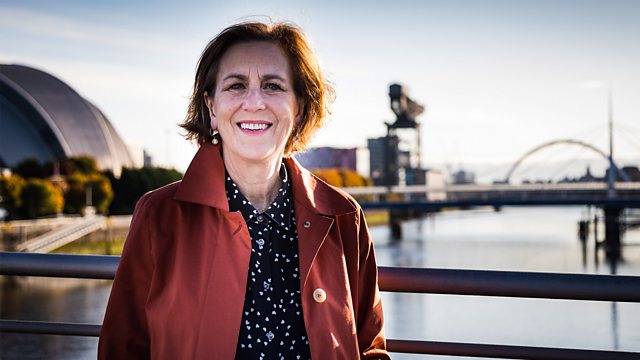
Episode 2
Kirsty Wark explores the 1980s and early 1990s, a time of painful transition in Scotland as old industries declined and new creative opportunities arose.
In this episode, Kirsty Wark revisits the 1980s and early 1990s, the period between the rise of Thatcherism and the birth of New Labour. For Scotland, it was a time of painful transition, but as old industries declined, some opportunities arose. These were the years that saw the rise of a new type of Scottish entrepreneur, that heralded a new era in home ownership and that witnessed the rebranding and creative revival of Scotland鈥檚 biggest city. All the while, a growing discontent with Britain鈥檚 democratic apparatus fuelled calls for constitutional change.
Kirsty travels to the Isle of Skye to learn about the fight to preserve the Gaelic language and hears from artists and musicians who found massive success in the 80s. She meets the women of the Lee Jeans factory in Greenock who took industrial action to save their jobs and finds out about the impact on people鈥檚 lives as old industries were shut down. She also visits the National Library of Scotland to see how Scots protested the Poll Tax and recalls her own landmark interview with prime minister Margaret Thatcher at the height of the protests.
The stories of these years are told through the memories of those who experienced them. Families and individuals from across Scotland recollect their struggles to cope with changes in the workplace, the new opportunities that arose in computing and creative industries, and their memories of the Glasgow Garden Festival. Kirsty also meets Scots who got creative in the 80s, such as Christine Borland, Nathan Coley and Alan McGee.
Last on
Credits
| Role | Contributor |
|---|---|
| Presenter | Kirsty Wark |
| Executive Producer | Mick McAvoy |
| Series Producer | Catherine Abbott |
Broadcasts
- Tue 12 Jan 2021 22:00
- Wed 13 Jan 2021 20:00
- Sun 15 Aug 2021 21:00
- Tue 2 Aug 2022 20:00
- Thu 15 Dec 2022 19:00
- Sun 22 Sep 2024 21:00
- Tue 24 Sep 2024 20:00
